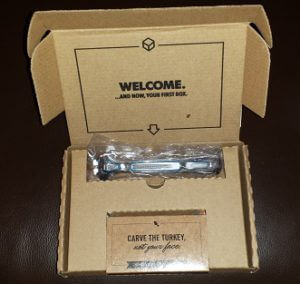As a marketer, it is extremely important to understand the concept of branding. So, what better way is there to learn about branding than from a talented branding expert like Dean Logan? I certainly cannot think of one.
Branding
Of course I had a million questions about branding that I would have loved to ask Dean, but for the sake of time, I had to keep it to a decent amount. Excited to learn more about branding, I first started off with a pretty basic question, “Do you think there is a big difference between branding and marketing?” He told me that he believes there is a difference between the two and explained what it is that differentiates one from the other. He described that branding creates an emotional reaction in the audience through actions, words, and imagery. As for marketing, it is a way of getting those things in front of the target market just at the right time for them to express that desired reaction.
To sum it up, he said, “They’re related and close cousins, but they are not the same thing.” His example was that you could create the most beautiful landing page, but it doesn’t matter if anyone sees it. With that being said, it’s the responsibility for marketers to create traffic to that page which consists of the right people.
A brand is what you think in your head and feel in your heart instantly when you hear a company’s name. Good brands have that emotional capital, and it’s way beyond what the homepage looks like, what the logo is, what they tweeted that day… it goes way beyond them. -Dean Logan
 To establish a strong brand, brands need to ask themselves, “What do we want our customers to expect from us. What’s the thing we do that makes our customers say, ‘That is so them.’” The good brands do just that. They let those questions be their compass and guide them on the right path.
To establish a strong brand, brands need to ask themselves, “What do we want our customers to expect from us. What’s the thing we do that makes our customers say, ‘That is so them.’” The good brands do just that. They let those questions be their compass and guide them on the right path.
Dean emphasized that the biggest, most important thing about branding is the emotional reaction that is associated with it, “When you hear the name of a company you immediately have an emotional response.” To continue further explanation, he pointed out the Amazon Student sticker on my laptop. He explained how the emotional reaction can be simple as the instant association of Amazon’s products being affordable and their shipping that is quick.
Beat Your Competitors
My next question, “How do you go about making a brand unique and stand out from its competitors?” His answer, “Find out what it is about that company, product, or service that is different from their competitors. Then build a brand around that.” However, he mentioned this could be extremely difficult to do, especially in parity industries that sell similar things.
As a company, it is important to find that one particular thing that makes you a differentiator.
It could be the way your service is implemented to your clients, a particular feature to your product, or maybe it’s the kind of people you have working on that thing, that service, or business. Are they all MBAs with management degrees? That could be something to be capitalized on. Now, judo flip that. ‘Our people are from all disciplines. We don’t think the same and you’ll get all different perspectives.’ All those are good things and directional, but if your product or service sucks, then no amount of branding is going to help you. Branding is great but the experience your customers have is more important. Branding will not fix everything. -Dean Logan
With that in mind, think of the branding difference between Uber and a new teeth whitening toothpaste. In Uber’s case, people love the experience, but they don’t care at all what the logo looks like. On the other hand, with a whitening toothpaste people do care about the look of the brand.
Leading a Brand to Success
Here are the two most important things that Dean believes a brand must have to lead them to success:
- Clear idea of who they want to be
- Clarity in their message and then reinforce it
Companies need to have a clear idea of who they want to be in the minds of their audience. The successful companies have a core message, and they stick to it in the way they advertise, how their products are packaged, and how they act on social media. If it all points to that single message, then they’ll most likely be successful.
Think of when JCPenney hired Ron Johnson, who formerly worked for Apple. Ron came into the store and attempted to make it hip by turning the store around. It ended up being a complete brand disaster because the changes were not consistent with the company’s true brand and message. As a result, they wasted millions of dollars.
Brand Consistency
It’s very important for brands to stay consistent with the messages they send. Not only through message consistency, but also in their tangible assets such as the logo, brand colors, and the overall design. For example, one of the first things I noticed when I arrived at ALPHA Marketing to interview Dean was the table in the conference room. It was broken up into four sections with each a different color of the company’s branded colors.
When it comes to having a brand consistency, Dean believes it’s important to:
- Have discipline
- Pick the right channels
- Have resources
Companies are perfectly capable of having a consistent brand operationally, but they often lack in this area through parts of their organization and within their marketing channels. It’s important to pick the right channels that make a good fit for your branding message. Dean continued to explain to me that it is really important to find where you want to be and to not ignore it. So often companies make, for example, a Twitter page, but then they don’t actively use it.
Dean also mentioned that it’s important for brands to have the right resources that their company needs. He went on to say that digital somehow got associated with being cheap, but in all actuality, that is not the case at all.
Company Branding Done Right
After I received some of Dean’s insight on branding, I asked, “Do you have any examples of companies that have naturally done really well at branding itself?” Outside of Disney and its extraordinary brand success, he noted that there are is definitely not a shortage of companies that have branded themselves really well.
 To give me an example, he mentioned the Dollar Shave Club. In everything that this company does, they add a reverent humorous tone to all of their messaging. It all started with the founder who previously was a standup comedian. He created a hilarious promotional video that went viral.
To give me an example, he mentioned the Dollar Shave Club. In everything that this company does, they add a reverent humorous tone to all of their messaging. It all started with the founder who previously was a standup comedian. He created a hilarious promotional video that went viral.
The company maintained the disciple to stick with a consistently funny tone and expanded to other marketing channels. They want their target audience to get a good laugh, whether it’s when they receive the products or follow the social media platforms.
The Future of Brands
How are the successful brands evolving? Dean says it is the realization that in addition to their social media and digital footprint, they need to deliver something to consumers. For example, the way a product arrives in someone’s mailbox or something memorable that happens in the store and makes an impression, can make a significant impact on consumers and increase brand awareness. We live in an experience economy, and marketers are testing what works and what doesn’t. For example, Disney invests significantly in customer experience by creating a magical, amazing experience for all who attend their parks.
On that note, during our meeting together, Dean put his trademark on a fantastic idea. He thinks that it would be a great idea for there to be a children’s hospital that is run by Disney. This way Disney can give the children in the hospital a magical experience and lighten their spirits.
Dean believes that within the next few years, people will begin putting more of their marketing dollars in experience driven occurrences. For instance, a company could provide something cool in an event sponsored tent that gives people a memorable experience.
He gave me specific examples of bands who not only played music for their fans but provided an experience. (I highly recommend clicking on the hyperlinks below to view some pretty sweet videos and interactive experiences).
- OK Go – Zero Gravity: This band is famous for their “weird” and “unique” videos
- Arcade Fire – Reflektor: This video is interactive and immersive, so you need your smartphone to sync with your laptop camera. Click here for the interactive version.
- Arcade Fire – Neon Bible: Want to see the interacting version of this song? Check it out here.
Overall, Dean thinks that in the future brands will not completely abandon traditional, but they will expand and invest more money into more engaging things like those stated above. He also thinks that brands will start to partner with one another to elevate and strengthen consumer experiences. As an example of this, think about if Lulu Lemon and Apple partnered up to create an engaging fitness experience for people. It would be pretty cool and most likely would be successful.
Dean’s Process
Curious as to how Dean comes up with such creative ideas, I asked what steps he goes through when designing something new. His answer was as follows, “I’m old school.” He begins drawing sketches because computers can easily make a bad idea look good. Once he finishes sketching, he then picks 2 or 3 strong directions, steps away for a little while, and then comes back to review them. After he completes his sketches and determines his top 2-3 directions, he uses digital tools that allow him to do things that he couldn’t have completed as quickly with the sketches. He develops his strong ideas until they are in a finished place that he can present to his client.
Most of the time he uses this method to weed out the good ideas from the bad. However, he sometimes will skip the sketching phase when an idea pops in his head that is already pretty finished. This isn’t rare since he has been working long enough in the business, so the pieces just naturally come together. He also keeps his software skills up to date, which is always beneficial. Dean recommends to fellow creatives to draw sketches out of their ideas first. This way they can put more details into their ideas.
 I then asked, “When creating a logo, how do you know where to start?” Dean responded with saying he first talks to his clients to get a solid idea of how they want to appear to their potential customers. “There’s no proven method. Every creative is different,” Dean adds. This just happens to be the way he goes about designing a logo.
I then asked, “When creating a logo, how do you know where to start?” Dean responded with saying he first talks to his clients to get a solid idea of how they want to appear to their potential customers. “There’s no proven method. Every creative is different,” Dean adds. This just happens to be the way he goes about designing a logo.
He asks them if they want to look progressive, modern, traditional, friendly, light and humorous, or serious and to the point. Sometimes what they express isn’t always right for their target audience. To visually know where to start, he needs to know the emotional reaction his client wants their customers to have. After that is determined, he goes through his designing process.
The Chance to Learn More
Just from our hour-long meeting, I learned a lot about branding from Dean. It was a terrific opportunity, and I certainly look forward to listening to what he has to say during the September TMC event. You too have the chance to hear what Dean has to say during his presentation, Embracing The Change: How Brands Must Evolve To Stay Relevant. So, don’t miss out on hearing a great branding presentation by the talented, Dean Logan.

